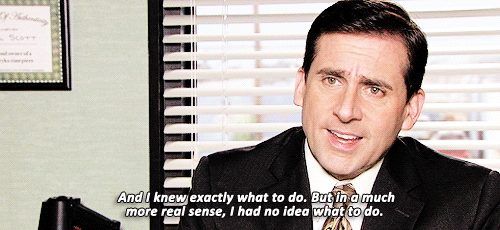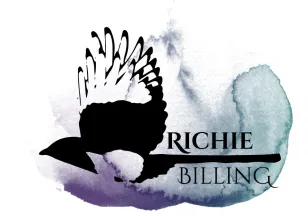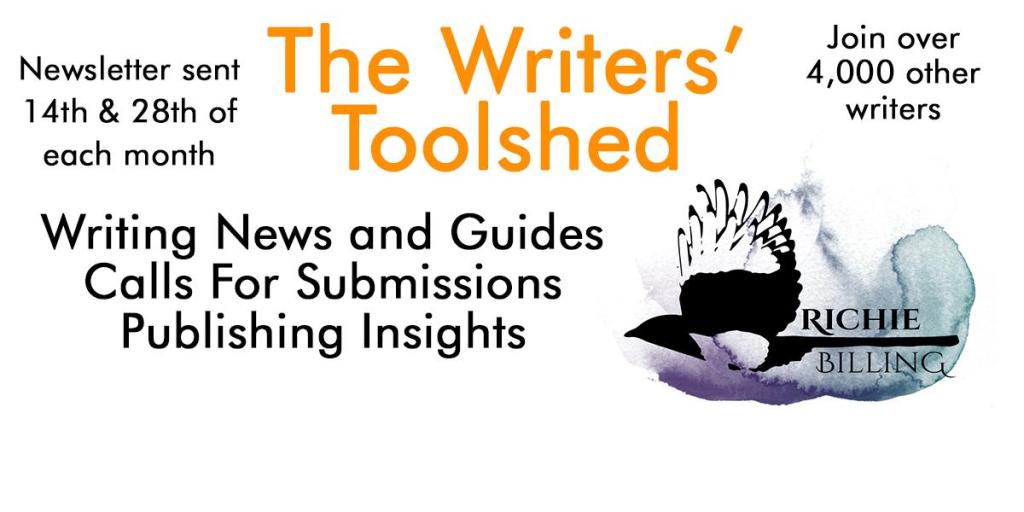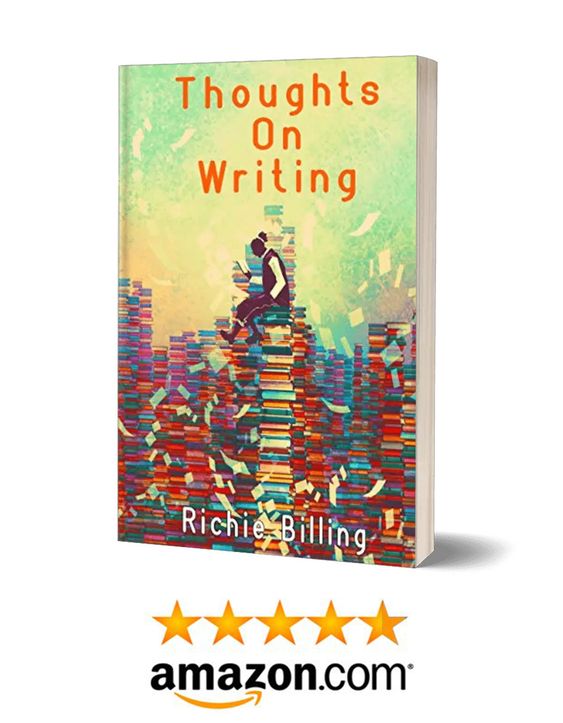Knowing when to rewrite your story is one of the biggest challenges a fiction writer can face. We invest so much time and effort into our novels and stories, it can be difficult to step away far enough to engage critically with them.
But worry not, for help is at hand. In this guide, I’ve put together a few useful writing tips to help you when it comes to knowing when to rewrite.
Here’s what we’ll cover below. Just click the link to jump to the section.
Choose A Chapter
- How Do You Know If You Should Rewrite Your Story?
- The Gut Feeling
- Seek The Opinions Of Others
- Step Back And Assess The Damage
- It Doesn’t All Have To Go
- If Wordcount’s An Issue, A Rewrite Will Fix It
- Ask Yourself, ‘Was This My First Idea?’
- Reflections On How To Rewrite Your Story
- Join An Online Writing Community
- More Writing Guides To Help With Knowing When To Rewrite Your Story
How Do You Know If You Should Rewrite Your Story?

I had a sickening moment when writing my second novel. While thinking about how best to put the pieces of a chapter together I realised none of it tied together.
Like trying to place circles into squares.
At that moment I was faced with a decision. Turn back and right the wrongs, or scribble on in ignorance.
In my heart and mind, I knew the changes would make the story better. But to do so would mean significant work. Butchering chapters I was pleased with, removing passages I liked. The hours spent thinking and planning would all be wasted.
I went on. Each word I wrote with less conviction. The urge to go back gnawed at me like an insatiable rat.
I caved. And I’m glad I did.
The Gut Feeling
Being faced with the cruel realisation that something you’ve invested so much time and effort into isn’t good enough, or doesn’t work, is one of the hardest things for a writer to endure.
I’ve spoken to writers who forever spend their time rewriting their story until they get it right. I’ve spoken to others who reject the idea. I’ve spoken to more who aren’t sure if it’s the right thing to do or not.
In the end, it can come down to a gut feeling. When I was struck by this dilemma of either writing on or going back, the idea of re-writing felt like the right thing to do. The newer version excited me. It felt as if I’d unlocked a door, a door leading to the way out of this labyrinthine story writing puzzle.
But when all you have for counsel is yourself, you can never be sure if it’s the right thing to do. What if the original version is better? What if I’ve made it worse?
There are, however, some things we can do to help make the crucial and difficult decision of whether or not to rewrite your story a little easier.

Seek The Opinions of Others
This is one of the best things you can do when it comes to deciding whether or not you should rewrite your story.
Getting the unbiased and honest opinions of readers is something every writer needs. I emphasise ‘unbiased’ and ‘honest’ here.
Getting feedback from family or friends is useful, but they’re always going to worry about hurting your feelings. It’ll never be truly honest.
So you need to branch out further, to people you don’t know.
Stephen King said that when approaching feedback on your work, if everybody raises different issues, you can probably ignore them. If they all say the same thing, you need to change it.
In my experience, the areas requiring a rewrite have often received comments like, “this is confusing,” “this doesn’t make sense,” “what?”, “I don’t get this.”
A bunch of comments like that is a clear sign that things need to change.
How To Find Readers To Work With To Rewrite Your Story
It can be tricky, especially in the early days of your carer, to find people to read your work and give you helpful feedback. I certainly struggled for a long while. But there are options available to you. Below, I’ve included some tips:
- Join online writing groups and connect with fellow writers. Many writers will read stories in exchange for you reading theirs. It’s a great way to build a network of beta readers. If you’re looking to connect with writers, why not check out my list of online writing groups
- Hire an editor. It’s a bit of a pricier option, but you get professional feedback which, in some cases, can be priceless.
- Reach out to your followers. If you have a mailing list why not reach out to some of your followers and ask if they’d be interested in checking out your work and giving some feedback. You could even send them a form to fill out so that you get exactly what you need.
Step Back And Assess The Damage
In the first moments when you realise things need to change, despair grips you, makes you want to take that manuscript outside and douse it with lighter fluid.
When I decided I needed to reconsider things, after my initial period of dread I went back and looked back at what actually needed to change. It turned out nowhere near as much as I thought. In fact, out of fourteen chapters, I only needed to change three, and two of them in minor ways. I certainly felt a lot better about rewriting as a result.
I come back to Stephen King again. One of the best bits of advice I took away from his book, On Writing, was to lock your story away for a few weeks. The longer the better. Why? Because it falls out of your mind. So when next you come to consider it, you’ll have fresh eyes. You’ll spot mistakes, clunky sentences, poor character development and plot holes.
As someone who skimps on description when writing first drafts, having those fresh eyes can make all the difference. I can better see the points in the story where I can elaborate and expand. It gives me a chance to sharpen my prose, see where I can add more vivid details by using the likes of the 5 senses.
In all, setting your story aside is well worth it and may save you from having to rewrite your story. And I know that enthusiastic impatience can sometimes get the better of us, but it’s important to remember that stories take time to write. They grow and develop.

It Doesn’t All Have To Go
Part of why it’s so difficult to come to terms with a rewrite of your story is down to the existing content. Blood, sweat and tears have been invested in the crafting of this literary piece. You can’t just discard it all and start again.
One thing that works for me is to go through with a highlighter and note the sections I like. It might be entire pages, depending on how precious I’m feeling, or it might just be a line or metaphor. Either way, when it comes to the rewrite, you’ve got the best of your writing on hand to help you out.
If Word Count’s An Issue, A Rewrite Will Fix It
When it came to editing one of my works in progress, I returned to chapter one, written about eighteen months beforehand, and was horrified by the word count. Twelve thousand words. What the hell did I write about? I loathe long chapters when reading. How can I not practice what I preach? It had to go. The excessive word count dictated so.
After I’d finished re-writing the chapter, the word count clocked in at three thousand four hundred. Just over three quarters less. When it came to that second version, I knew what I wanted to say. I liposuctioned the flab, stuck to the point. Now I can say, without a shadow of a doubt, the newer version is better and certainly more readable.
So if you’re struggling to cut the words, consider a rewrite of your story, or at least parts of it.
Ask Yourself, ‘Was This Your First Idea?’
This may just apply to me, but sometimes when mapping out a story I like my first idea so much I settle for it. What I’ve come to learn is that if I took more time to actually consider other options before deciding on a course then I’d save myself a lot of hardship down the line.
So when I get that first idea that brings so much excitement, I take more time to consider it. You’d be surprised how often that first idea now gets shelved. Try and think of as many possibilities as possible. Unless that initial idea is golden, keep on pondering.
Reflections On How To Rewrite Your Story
Having to rewrite your story is neither fun nor simple. But when you realise that it has to be done for the sake of the story and characters, it’s certainly a sacrifice worth making.
For me, one of the worst feelings imaginable would be opening my book and reading through it with regret. So I’ve come to accept that I’ll never get it right the first time, that rewrites are a part of the process. I feel it’s helped me grow as a writer. I hope these tips help you out too.
Share Your Thoughts
Can you relate to these things? What’s your experience of re-writing? Is it something you accept has to be done or do you resist it and write on it?
I’d love to hear your views so please share in the comments below!
Join An Online Writing Community
If you’d like more help rewriting your story, get in touch via my contact page. Or why not join my online writing community? We operate over Facebook and Discord. It’s an excellent way to connect with hundreds of like-minded people who’ll help you with feedback on your works in progress, idea discussion and much more.
More Writing Guides To Help With Knowing When To Rewrite Your Story
Thanks for checking out this writing guide. I hope it’s shed some light on the eternal issues of knowing when to rewrite your story. For more help and support, I’ve included some other guides you may find useful.
- A guide on how to plan writing a story as a non-planner
- How to write a flashback
- How to create tension
- A talk by Sadie Jones on how rewriting is the only form of writing
- 5 Tips to Help Your Child Learn and Succeed at Primary School - February 26, 2024
- The Advantages Of Using An AI Essay Typer Alternative - February 14, 2024
- Advice On Getting Help With Your Homework - January 26, 2024






I’ve never EVER had to rewrite a novel. I write so linear, it’s never been an issue. I’ve deleted an occasional scene or chapter that wasn’t necessary, but before I start, I always know A and B and work from there. So far, I’ve never written myself into a trap where I had to back up and start over, not since BEFORE I started writing seriously in 1995, and then, I could barely get a short short story completed. It just doesn’t happen for me. Now, I’ve cut down on fluff, which probably isn’t quite the same as what you’re talking about. My novel Lusitania Gold, published last year, started at a little over 130K and after reading it to my writer’s group and learning my chops better, I pared it down to 97K or thereabouts. I didn’t alter the story, plot or anything vital by one bit. I just honed it, cleaned it up, I did NOT re-write it at all. There’s a big difference.
Aw, shucks! I feel for you, Richie, but I guess it happens to most of us. For me, the thing is, as I get more experienced, my gut gets better too. 😀 (And I don’t just mean all the crunches I do!) When it says something, nine out of ten times it’s right. Then the real issue is listening to the gut, and acting as soon as it speaks up!
Thanks! I can handle it now! My guy has certainly improved too! Keep up to good work with those crunches! Thanks for reading and commenting
Pingback: Prose In Writing - Here's What You Need To Know - Richie Billing
This is very useful to me. I’m actually rewriting a handwritten manuscript at the moment.
So glad to hear you found it useful! And very interesting that you write by hand too. I’m a big fan of that approach, but had to reduce how much I did it cos it took too long.
How’s the rewriting going so far?
Pingback: What Is Foreshadowing In A Story? [Definition and Examples] - Richie Billing
Pingback: Excellent Examples Of The 5 Senses In Writing - Richie Billing
Pingback: How to Make Money Writing Fiction: 7 Ways to Earn an Income - Em Dash Press